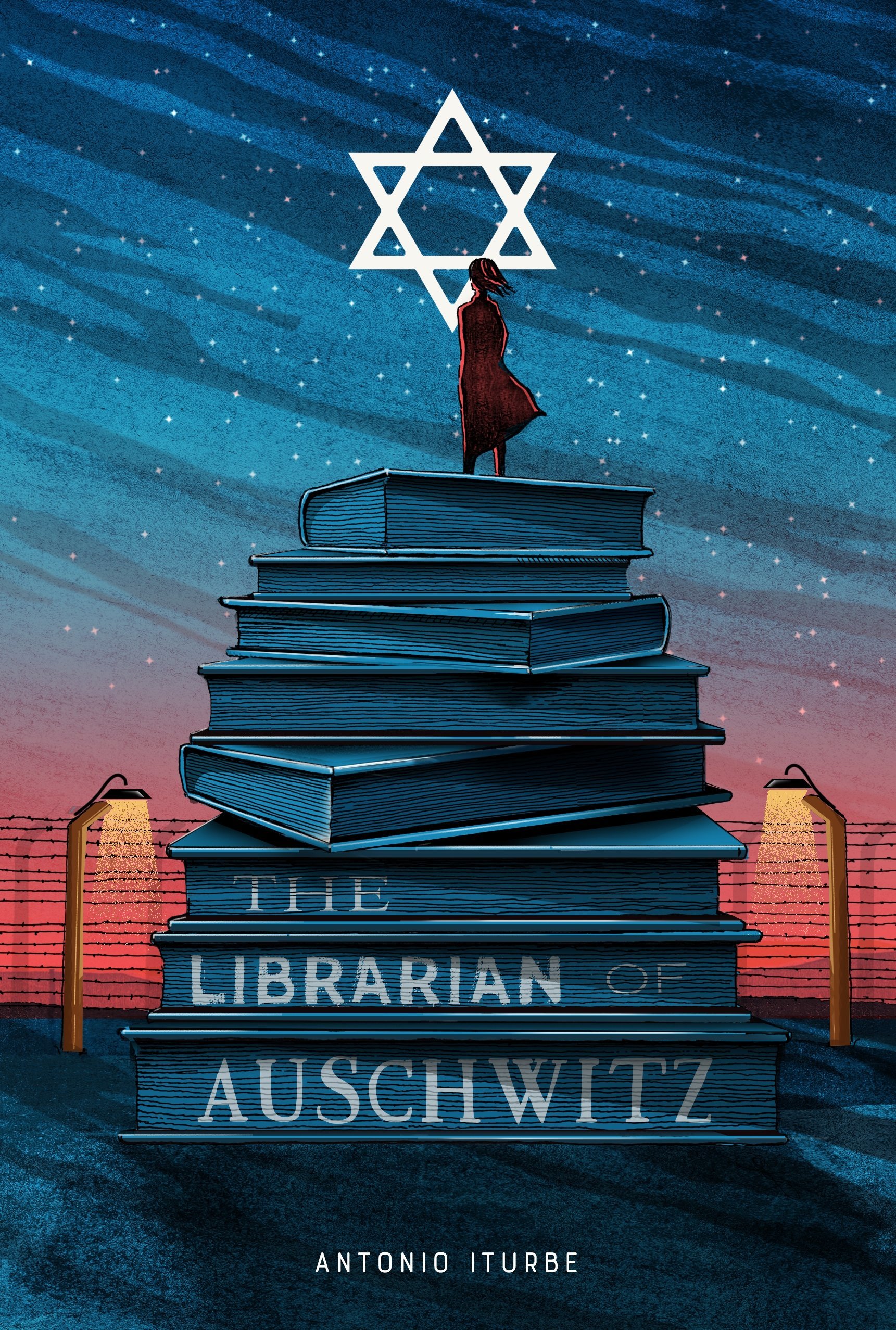 There are few places spoken of that can unite us in such dark discomfort yet intrigue the minds of anyone in earshot. I picked up The Librarian of Auschwitz by Antonio Iturbe with a culmination of fear and curiosity. To me, a library is one of the safest and calmest environments, a place to relax and absorb knowledge, yet in this title, it is contrasted by of one of the darkest places in history. Being Jewish myself, I’ve always known about the history of World War II and the Holocaust but have always strayed away from digging too deep into the topic, regardless, I picked up this book and am grateful I did.
There are few places spoken of that can unite us in such dark discomfort yet intrigue the minds of anyone in earshot. I picked up The Librarian of Auschwitz by Antonio Iturbe with a culmination of fear and curiosity. To me, a library is one of the safest and calmest environments, a place to relax and absorb knowledge, yet in this title, it is contrasted by of one of the darkest places in history. Being Jewish myself, I’ve always known about the history of World War II and the Holocaust but have always strayed away from digging too deep into the topic, regardless, I picked up this book and am grateful I did.
About the Book:
The Librarian of Auschwitz is based off of the real-life experiences of Dita Kraus as she risked her life to keep alive the magic of literature within the walls of Auschwitz. Antonio Iturbe took interest in the history of Auschwitz when he came across a novel written by Dita’s husband, Ota Kraus. He took inspiration from this book and meticulously researched Dita’s story, after contacting her, he began writing The Librarian of Auschwitz and published it in 2012, originally written in Spanish. While the story is based off truth, there are still many aspects of fiction woven throughout the novel, but the overall story is mainly factual.
The novel begins with 14-year-old Dita Adler, who becomes the librarian of a secret school within Block 31 of Auschwitz. Despite the constant threat of discovery and death, Dita and her fellow prisoners strive to maintain a semblance of normalcy and hope through education and the sharing of stories. Through Dita’s eyes, readers experience the terror, despair, and fleeting joys of life in the camp. Her character is richly developed, embodying resilience, intelligence, and a fierce determination to preserve the fragments of culture and knowledge that the Nazis sought to obliterate.
Review of the Book:
One of the most compelling aspects of The Librarian of Auschwitz is its portrayal of the significance of books and education even in the most dire circumstances. The story demonstrates how literature can serve as a form of resistance against tyranny and a means of preserving one’s identity and dignity. The characters’ interactions with the books in their secret library underscore the idea that knowledge and imagination are forms of freedom that no oppressor can completely extinguish. The bonds formed between the prisoners, their acts of solidarity, and their small rebellions against their captors create a vivid picture of a community that refuses to be completely crushed by the weight of oppression. Iturbe’s attention to detail and his ability to convey the emotional depth of his characters make their stories resonate long after the final page is turned. The Librarian of Auschwitz is not just a story about the Holocaust; it is a story about the enduring power of hope, courage, and the written word. It reminds us that even in the face of unimaginable cruelty, there is still room for kindness, bravery, and the pursuit of knowledge.
Yet greatness never exists without equal public opposition, one of the most commonly mentioned critiques is that the book is listed as Young Adult but has many extremely graphic and dark moments that may be too complicated for young persons. The topic of age limits and book bans is still scorching hot in the media and makes books like these difficult to talk about without recognizing these opinions. I personally believe that this book is a must-read for people of all backgrounds as a reminder of our dark past, and while I think that this shouldn’t be taught until an age where this intense information can be properly understood, I don’t think that erasing literature from the hands of curious minds is the answer either.
In conclusion, I am glad I picked up The Librarian of Auschwitz, it is a profoundly moving and thought-provoking book that pays tribute to the resilience of the human spirit in even the darkest of times. Antonio Iturbe has crafted a compelling narrative that is both a gripping historical novel and a reminder of the importance of literature in education. Dita Kraus’s story is one that deserves to be told and remembered, and Iturbe’s novel ensures that it will be through this treacherous story. This book is a must-read for anyone interested in history, literature, or the triumph of hope over despair.
Discover more from Shelf-Promotion
Subscribe to get the latest posts sent to your email.

You must be logged in to post a comment.